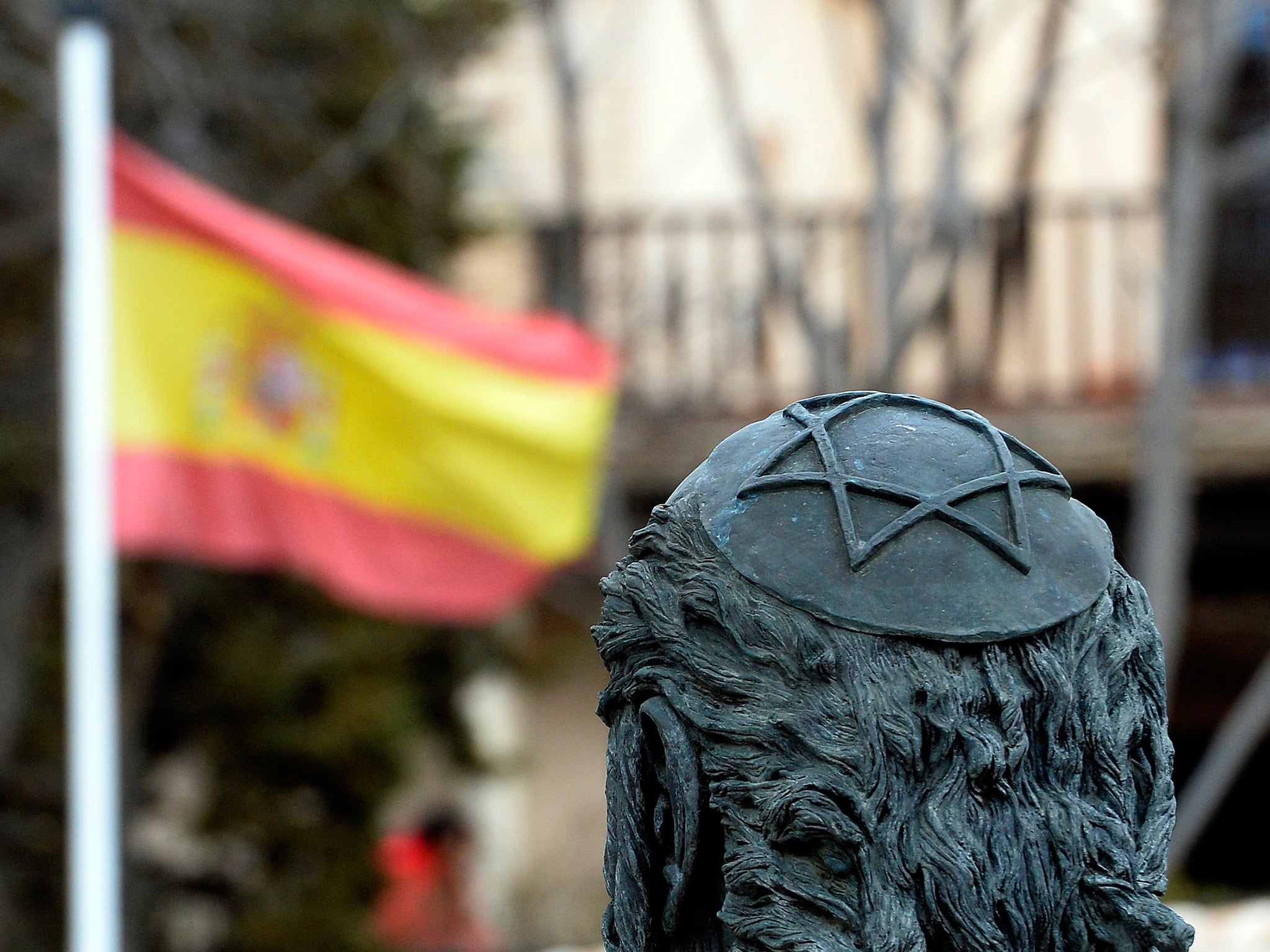Spain's offer to Sephardic Jews to 'come home' may come with costly strings and red tape attached
The application procedure for 'returning' Sephardic Jews has been criticised for cost and complication, and for the possible inclusion of a general knowledge test on Spain's constitution

When it was confirmed that the descendants of a Jewish community exiled from Spain more than 500 years ago would be granted legal rights to apply for Spanish citizenship, Batsheba Chevalier Sola and Jose Romero Caballero, who run Granada’s tiny but thriving Jewish information centre, were quietly contented with the news. Now, however, they – and others – are not so sure.
In medieval times, Granada was one of Spain’s most important Jewish centres. The modern-day information office, comprising four minuscule rooms and a roof-top terrace in the city’s old Jewish quarter, the Realejo, has received a steady stream of local and foreign tourists since it opened in 2012.
But Ms Chevalier Sola says she hears steadily increasing numbers of complaints about Spain’s passport project for Sephardic (of Hispanic origin) Jews, principally about the law’s excessive red tape and, within that, an excessive cost for applicants.

“This law acts as a [historic] recognition of the pain and the damage that was suffered in Spain by the Jews after everything they had contributed here,” Ms Chevalier Sola said. “But I now view it as a two-edged weapon.”
Mr Romero Caballero, a retired religious studies teacher, added: “After the humiliation and pillaging [following the 1492 Alhambra Decree], this law is a formal recognition [of responsibility] but nothing more.”
Legislators in the ruling People’s Party government say there is still room for improvement in the proposed final format of the laws, due to be passed in the autumn, which would allow applicants to gain dual Spanish citizenship.
The small print reportedly requires each applicant to make two visits to Spain, first for a personal interview and then for registration as a citizen. The cost of that is likely to be too high for entire families of Sephardic Jews living, as many do, in North and South America.
There are gripes too, about charges for the passport, fixed provisionally at €75 (£54). Finally, a possible general knowledge test on Spain’s constitution and current social situation has been criticised. Opponents say that knowledge of the ancient Sephardic languages Ladino or Haketia should suffice as proof of Spanish ancestry.
Abroad, some potential Jewish beneficiaries confirm their dissatisfaction. “It [the legislation] was all very beautiful at first, but afterwards it has been a disappointment,” Patricia Harari, an Argentinian Sephardic Jew now living in Israel, told El País newspaper. “Many families will not be able to afford to take all of their relatives there twice.”
Ms Chevalier Sola plans to apply to open a synagogue – the first in Granada since 1492. However, she and Mr Romero Caballero are unsure of how many former Sephardic Jews – of the estimated 90,000 able to apply – will make use of Spain’s offer.
“We get a lot of Argentinians here, particularly elderly women who are getting very emotional about their new nationality,” Ms Chevalier Sola said. “They feel this law is a recognition, not towards them, but towards everything that was here beforehand. But people actually saying they will use their passport to stay here? So far, nobody.”
Join our commenting forum
Join thought-provoking conversations, follow other Independent readers and see their replies
Comments